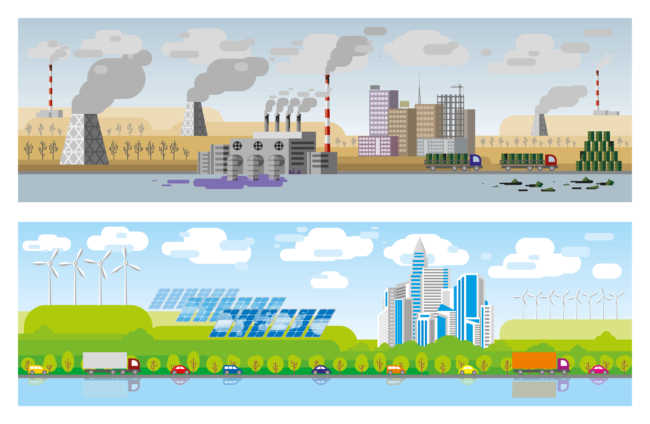Investment in water infrastructure – a key role in smart cities development
Investment in water infrastructure
With the United Nations reporting that 60% of the global population will call an urban area home by 2030, what are the most pressing infrastructural systems that cities will need to evaluate to meet the growing demand of this population?
The key challenge for cities will be to manage the growth while transitioning to a sustainable reliable energy supply with very limited financial and spatial resources. This means that a city has to balance sustainable and stable supply of water, electricity, heat, and housing, while also integrating new sources of urban renewable energy. Cities will also need to update, renew, and expand their water and waste water networks and re-organize the city’s transportation. These are huge challenges where advanced digital solutions can help to achieve the three goals: increase sustainability, resilience, and efficiency.
trends in technology regarding smart water investments and infrastructure
Proper water and energy efficiency often dictates a citizen’s quality of life in any environment. What trends in technology are you seeing advance the equitable water infrastructure?
The importance of a clean and sustainable water and energy supply is getting more and more attention across the globe to manage the growing population in cities. Not only to meet climate and safety goals, but especially to ensure the future economic competitiveness of a city. Therefore, control and monitoring of water networks will need to be improved to address water and waste water challenges. However, we can go beyond the basic technology. Digitalization helps in the coordination of the operation of all infrastructure assets in a city in order to minimize the operational costs associated with them.
How can power and water utilities serve as a smart city solution to businesses and citizens? And how can public authorities work collaboratively with providers to bring it to their community?
Public authorities can bring smart city solutions to businesses and citizens by first defining a clear objective. For example, “What do we want to achieve in our city, how and why?” To define these objectives, public authorities should bring together key stakeholders including citizens, businesses and companies as well as service and technology providers. Collaboratively, city-wide goals, a vision, strategy, and regulation can be defined with a robust road map for real innovation. Power and water utilities should be active players in these collaborative leadership teams, as they provide experience and expertise to improve operations both securely and sustainably.
Without a collaborative approach, only urgent needs will be addressed without any plan to better the lives of citizens in the long term.
digital transformation of water utilities
Digital Infrastructure requires significant financial resources. How can the digital transformation of water utilities and automation systems pay off as a cost effective and energy efficient solution that meets the end-user’s requirements in the long term? (How can cities prioritize water as a critical investment for smart city development?)
The installation of the foundation technologies like EV-Chargers, urban renewable generation, building automation, water metering and leakage detection systems or even Free WiFi in public squares is very cost intensive. However, to bring true value to citizens by combining and optimizing these technologies together, the backbone is the digital infrastructure. Only with smart connection and joint operational optimization with digital services, can a city free up financial resources that are otherwise tight, inefficiently and uncoordinatedly running all of these services in parallel. The money saved from digital integration can be re-invested to benefit citizens in the long term.
Investment in water infrastructure – a key role in smart cities development
Water plays an essential role in the every day lives of people, communities, and business. Without investment in water infrastructure, smart cities have limited room for development. See other challenges and opportunities in the water industry.
This is an interview with Sleman Saliba, Business Development for Smart Cities and Energy Optimization Solutions for the ABB Power Generation & Water Business, conducted by MediaPlanet. Read the full article “Six Experts Talk About the Pressing Need for Smart Cities” here.



